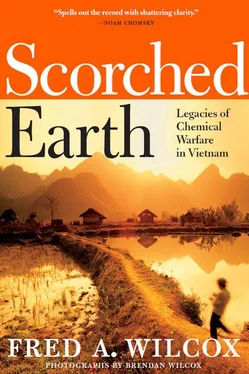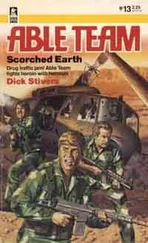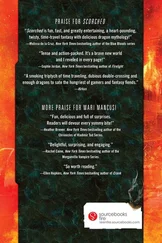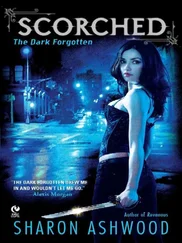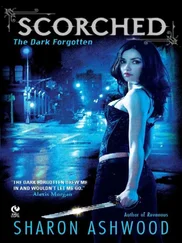The most painful fact is that dioxin affects generations. The rate of children who have congenital malformations in Vietnam is higher than that in other countries even thirty years after the war ended…. It’s a pity that American judges have dismissed the claims of Vietnamese Agent Orange victims with very unconvincing reasons. In fact, they don’t respect the truth and justice. 13
In January 2006, a Seoul court ordered Dow Chemical and Monsanto to pay $62 million to 6,800 Korean veterans and their families. New Zealand’s government apologized for sending its veterans to Southeast Asia where they were exposed to dioxin. New Zealand’s Vietnam veterans were planning to file a lawsuit against the US chemical companies claiming $3 billion in compensation.
The courageous struggle of the Agent Orange victims in Vietnam and their lawsuit are not only for the sake of their own and their children, but also for the legitimate benefit of the Agent Orange victims in other countries such as America, Korea, Australia, New Zealand, and Canada. 14
Dr. Nhan concluded his talk by asking the scholars whether there is justice and conscience in the USA? And, if so, who might the people be who really respect it?
Dr. Nhan offers me another cup of coffee. “Do you know Admiral Zumwalt and his book, My Father, My Son ?” he asks.
“Yes, I do know Admiral Zumwalt.”
As the officer in command of all naval operations in the southern half of Vietnam, Admiral Zumwalt ordered the use of Agent Orange along the banks of rivers and canals. His son, Lieutenant Elmo Zumwalt III, served on one of boats that plied these waterways, searching for Vietcong to kill. During lulls in the fighting, he and his crew swam in the Quang Nam and Ma rivers, ate food from markets along riverbanks, and drank water contaminated with Agent Orange. Lieutenant Zumwalt and I were scheduled to appear together on “Kelly & Company,” a live audience talk show in Detroit. Unfortunately, he was terminally ill and couldn’t fly to Michigan, so he called into the show and we talked together that way. A man sat in a wheelchair in the front row of the studio. He was holding a photograph of a nineteen-year-old soldier. Now in his early thirties, the ex-soldier who’d been exposed to Agent Orange was a trembling, emaciated, feeble old man.
Elmo Zumwalt III fathered a son with learning disabilities and, after a long, hard struggle he died of cancer.
Admiral Zumwalt spent the last years of his own life advocating for Agent Orange victims. After an exhaustive study to determine whether “it is as likely as not that there is a statistical association between exposure to Agent Orange and a specific health effect,” Zumwalt concluded that the government and the chemical companies had in fact conspired to deny Vietnam veterans much needed help for their war-related illnesses. Perhaps his most disturbing finding was that some notable “scientific studies” were seriously flawed or falsified, with researchers using bogus statistics to deny any association between exposure to Agent Orange and human illness:
For instance, recent litigation against the Monsanto Corporation revealed conclusive evidence that studies conducted by Monsanto employees to examine the health effects of exposure to dioxin were fraudulent. These same fraudulent studies have been repeatedly cited by government officials to deny the existence of a relationship between health problems and exposure to Agent Orange. 15
Even before beginning his research, Admiral Zumwalt knew that Ranch Hand pilots, who flew C-123 aircraft to defoliate Vietnam’s forests and jungles, had been heavily exposed to Agent Orange. He was also aware that based on its Ranch Hand study, the Air Force had concluded that Agent Orange had not adversely affected these pilots. Zumwalt’s research confirmed his suspicions that this study was seriously flawed.
In 1987, Ranch Hand scientists confirmed to Senator Daschle that an unpublished birth defects report shows that birth defects among Ranch Hand children are double those of children in the control group and not “minor” as originally reported in 1984. 16
Ranch Hander pilots “also showed a significant increase in skin cancers unrelated to overexposure to the sun as originally suggested in the 1984 report.” 17
And:
The Centers for Disease Control (CDC) birth defects study was confined to Vietnam Veterans located in the Atlanta, Georgia region. The study was not an Agent Orange birth defects study since no effort was made to determine whether the veterans had ever been exposed to Agent Orange. 18
For the Airforce to have made the statement in 1990 of no evidence of a link between exposure to Agent Orange and the cancer problems experienced by Ranch Handers is, as Senator Daschle notes, “patently false.” 19
Admiral Zumwalt chastised the Veterans’ Advisory Committee on Environmental Hazards for its “blanket lack of impartiality. In fact, some members of the Advisory Committee and other VA officials have, even before reviewing the evidence [my italics], publicly denied the existence of a correlation between exposure to dioxin and adverse health effects.” 20
Zumwalt concluded that there was ample scientific evidence to demonstrate a connection between Agent Orange exposure and human illness. Regarding the question of birth defects, he wrote:
Any Vietnam Veteran, or Vietnam Veteran’s child who has a birth defect, should be presumed to have a service-connected health effect if that person suffers from the type of health effects considered with dioxin exposure and the Veteran’s health or service record establishes 1) abnormally high TCDD in blood tests; or 2) the veteran’s presence within 20 kilometers and 30 days of a known sprayed area (as shown by HERBs tapes and corresponding company records); or 3) the Veteran’s presence at fire base perimeters or brown water operations where there is reason to believe Agent Orange [spraying] has occurred. 21
Admiral Zumwalt confirmed that Vietnam veterans suffering Agent Orange exposure had been right all along.
In his address to American Study scholars in Albuquerque, Dr. Nhan quotes President Clinton:
[Clinton said,] “Today we are showing that America can listen and act. Our country can face up to the consequences of our actions…. We will bear the responsibility for the harm we do, even when the harm is unintended…. Nothing we can do will ever repay the Vietnam veterans for all they gave and all they lost, particularly those who have been damaged by Agent Orange.” 22
President Clinton promised to listen to victims of Agent Orange. He did not promise to help them secure quality health care. Nor did he offer them financial assistance. The key word in the president’s speech is “unintended.”
Outside, the honking grows, expands, echoes off buildings, bounces into the room; it is so discordant that a Vietnamese English-language paper publishes an indignant editorial protesting against “Hanoi’s Horny Drivers.”
Our translators check their notes, and Dr. Nhan talks about the Vietnamese lawsuit, which US appellate courts have dismissed and which the Supreme Court refused to even discuss.
“At the beginning, we didn’t think we could win the case. You see, in some wars we lost, but finally we were the winner. So we will have many ways outside of the court to struggle against the chemical companies.”
We’ve been talking a long time and the interpreters must be tired. Sometimes, we have to stop and sort things out because we are attempting to communicate across cultural and linguistic differences. In English, we use “go,” “going,” “gone, “while the Vietnamese speak and write in what we call the present tense. In Vietnamese, a sequence of letters has only one meaning, but depending on the tone a speaker uses, the meaning of these letters changes. There’s no simple use of “you,” and there seems to be no real place, as in English, for “I.”
Читать дальше
